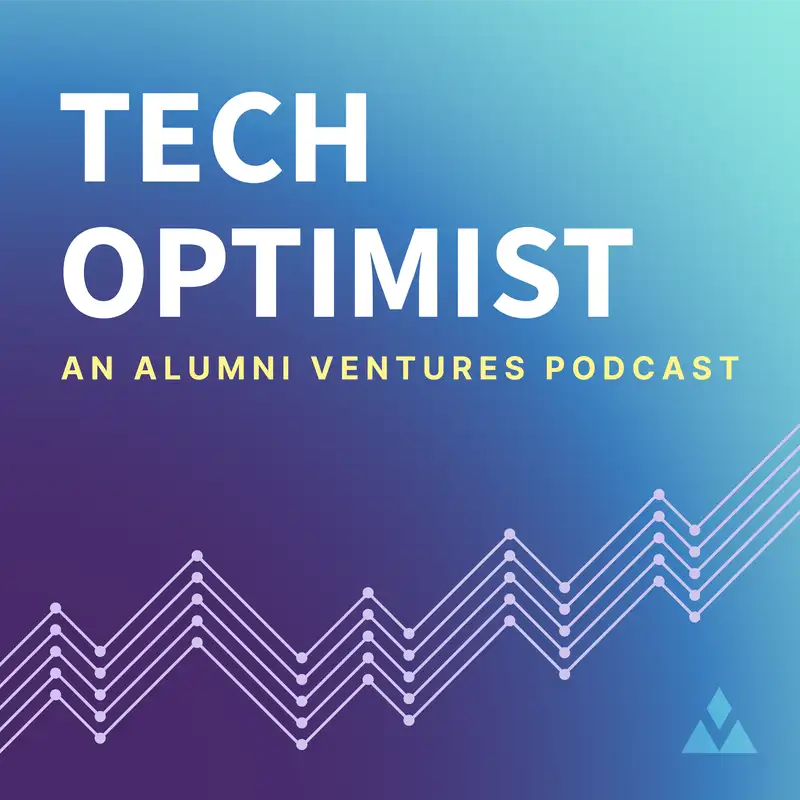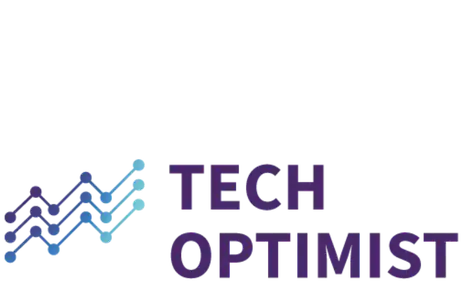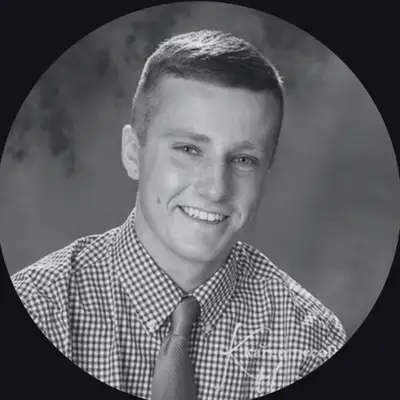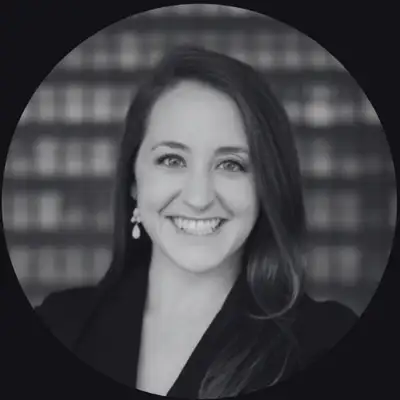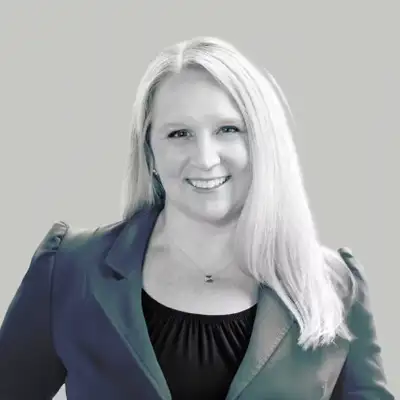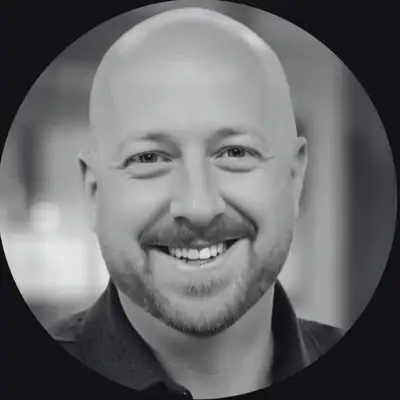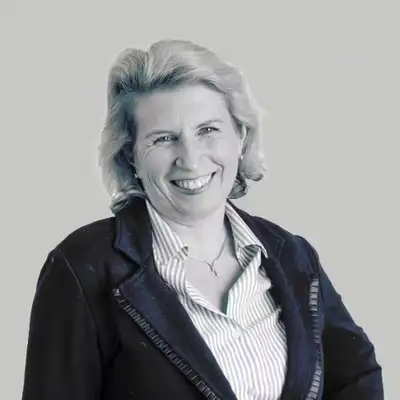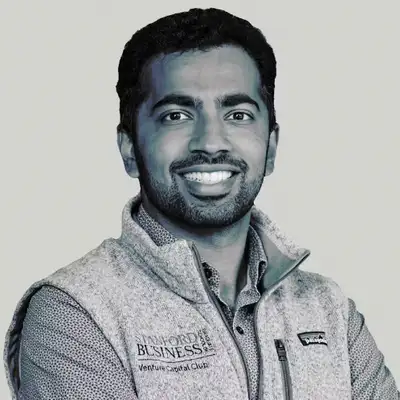#1 - High Heels on the Job Site
Narrator (00:00):
In a world captivated by criticism and negative clickbait headlines, it's easy to overlook the scope and power of technologies propelling us forward. At Tech Optimist, we delve into the vibrant intersection of technology and entrepreneurship, shining a light on innovators who are building a better future. As members of the most active venture capital firm in the United States, our unique vantage point offers us insights into the real world impact of technology. Join us as we explore, celebrate, and contribute to the stories of those creating tomorrow.
Mike Collins (00:48):
Welcome to the first episode of the Tech Optimist Podcast. I'm Mike Collins, the founder and CEO of Alumni Ventures. The Tech Optimist Podcast covers topics at the intersection of technology, entrepreneurship, and venture capital. In this first episode, we have three blocks for you. In block one, I interview one of our founders, Janna Wanzdilak. I'll tell you a little bit more about our company Bundle in just a moment. In block two, I talked to one of our young principals, Naren Ramaswamy, on three things that VCs and entrepreneurs are talking about. Finally, in block three, I get an update from Laura Rippy, a leading VC who talks about the status of women in the venture ecosystem. Enjoy the show.
(01:37):
As a reminder, the Tech Optimist Podcast is for informational purposes only. It is not personalized financial advice and it is not an offer to buy or sell securities. For important additional disclosures, please see the text description accompanying this episode. In this block, I chat with the CEO of AV portfolio company, Bundle, Janna Wanzdilak for startup, which she founded with a Stanford Business School classmate, she's working to bring tech-powered buying solutions to small builders. She's still at the seed stage, but the Bundle team has made some real progress. Hi, Janna. Where does this find you today?
Janna Wanzdilak (02:23):
Yeah, I'm calling in from Oakland, California, actually about to go interview someone down the street and then heading to San Francisco for a meeting this afternoon. So hopping around, but Bay Area.
Mike Collins (02:33):
Great, excellent. And tell our listeners about Bundle. What's your genesis story? What do you guys do?
Janna Wanzdilak (02:41):
Yeah, totally. So Bundle is an end-to-end procurement platform or a digital procurement platform that makes it easier to buy, sell, or manage construction materials. We're really focused on the SMB residential space and we've seen that when builders are using Bundle, they're able to run their purchasing process at 10x speed and also find between 10 to 20% cost savings on products. So super cool, really addressing the problem that almost every construction project, 98% of construction projects finish over time and over budget, and that results in almost $400 billion in spend annually in the US as a result of procurement issues.
(03:17):
So myself and most of our team have come from the construction industry, really seeing the challenge real-time, how old-school and sort of antiquated a lot of processes are in designing construction. I think for me personally, before coming out to the West Coast for business school, I've had very much been feet on the ground in design and construction, had project manage the headquarters of the company I was at, and had really built a cool project at the end of the day, but finished way over time, way over budget and opened my eyes to how antiquated and fragmented so much of designing construction really is and how much we really need to step upstream and rethink how some of the processes happen to unlock better building downstream.
Mike Collins (04:00):
So just to plan it back for my own brain, this is a small builder that's building what dozens of homes a year and they're keeping track of all of the stuff that goes into building a house, what? On spreadsheets and file [inaudible 00:04:20], do they typically have a person that does this or they're doing it themselves or?
Janna Wanzdilak (04:26):
Yeah, great question. And exactly right, a lot of this is pen, paper, spreadsheets, phone calls, emails, sometimes faxes, the dreaded fax machine and they often will have someone managing the process. For a small builder, they're often pulling someone off of a job site, which can be a challenge. That person has something else that they could be doing. I would say if you're looking upstream at a bigger builder, they have the money to throw at a purchasing team who are negotiating relationships further up the supply chain. They have volume so they can negotiate some of those relationships. That's exactly right. As a smaller builder, you don't have that money to throw at the problem necessarily. And a lot of your projects are different from one to the next. And so, you're needing to call tens to hundreds of suppliers on every project, figure out pricing.
(05:11):
We times basically run a bid process, then handle payments with all those guys and then figure out where all your products are on their way to the job site. So Bundle allows you to do all of that in one platform. I would say the other value that they bring, hence our name Bundle, is that we're essentially aggregating small and medium builders together or small and medium projects together and giving that access further out the supply chain, almost like a buy-in group in that we're getting them hopefully better pricing, lead times availability, maybe even just better return policies or more direct communication to a manufacturer or to a wholesaler that they've even been otherwise.
Mike Collins (05:48):
Cool. So tell us a little bit about the company. Where are you in your journey? Do you have a co-founder? How'd you guys meet? That part of the story.
Janna Wanzdilak (06:00):
Yeah, definitely. So I met my co-founder, Edison, at business school. He had been an architect for about five years before coming to business school, so I'd see very similar challenges in the industry, but from a different angle. We've been around now for about two and a half years, which is wild, time flies. But we had raised about a million dollar pre-seed end of 2021, closed about a $4 million seed round last February, so about a year ago. We're now team of 11 with some contractors beyond that churning away kind of solid early product that or customer base and 2024 is a hopefully think of growth for us, really focused on solving some of the go-to market questions. We've obviously sold to a bunch of customers so far, whereas the unlock there, whether it's kind of market angle or we've also just how do we have a rinse and repeat process to really drive fast events there.
Mike Collins (06:54):
Tell me a little bit about when you bring technology to maybe an industry or a customer base that hasn't had a lot of it yet, even if it's clearly a better way to do it. You run into just changed and people are busy and this is the way we've always done it. How have you guys thought about addressing that kind of roadblock that all businesses like yours face in their journey?
Janna Wanzdilak (07:26):
Yeah, definitely. I would say two different things. One is I really think having a team that comes from the industry goes a really long way. People that can talk the talk and sort of see around corners, people who have experienced the exact pain points that our customers have really helps in those early sales conversations. But even beyond that, I would say the other big thing is it's an interesting time in construction tech right now because we are often convincing people to go from spreadsheets, no software into software, but a lot of the builders we talk to have actually tried out some sort of software at this point and many of them have been burned. And so, I would argue it's almost more complicated than just getting them to try it because there's often been software that either was over promised to them or took so much time to onboard.
(08:15):
Again, they're small teams. If they've spent a ton of time getting everyone up to speed for a solution that doesn't really hurt, they're much more cautious of doing that again. And so, one of the things that I think even differentiates us in the industry is that we've built a tool that is almost zero onboarding. We honestly go from demo call to send us a list of products, you're on boarded essentially, and it's a really simple and streamlined process to get things moving. Part of that is we're trying to take the workflow from you, so we are in a product that we're expecting you to sit in every day. It's a little bit more like you wake up in the morning, go to work, log into Bundle, do your couple of tasks, and then you're out hopefully 10, 20 minutes max. And with that we really focus on shaping an experience that's really lightweight for the builder to really address something like that.
Mike Collins (09:06):
How has it been as a woman, what I'm guessing was a very male dominated construction business? Is it, Oh, they remember me because I'm a woman, or does it make it more challenging? What's been your experience on your real life?
Janna Wanzdilak (09:29):
Yeah, it's a great question. I think it very much depends on who we're selling to. The industry is definitely changing for sure. I think being memorable is great. I actually wrote a blog at some point that was basically like, "I'm memorable because I walked across a job site in high heels" and that's not typical. I mean, I've definitely picked a sales team that looks a little bit more like the industry for selling to some of those customers and sort of dropping by a job site definitely goes a long way. I think when you can establish credibility and some of that is looking the part. But we actually work with a lot of different... I would say newer kind of new generation type of building designers. And so, it's actually been nice to have a pretty diverse team to kind of cater to a lot of different customer types as well.
(10:17):
And it's an interesting time in the industry which has sort created this boom in construction tech in that a lot of people are retiring out of the industry that fit more of that old school [inaudible 00:10:29] and not enough new people coming in. And so, the people that are family businesses are in the industry a little bit younger, are really looking for solutions to bring the businesses forward, but also there's not enough labor. And so, it's an interesting kind of time to be innovative tech. We have a solution for you, we market ourselves as your outsource purchasing team. And with that, people are sometimes looking for something new or kind of different from an industry as usual work. So our business has a huge role.
Mike Collins (10:56):
Take a step back. I mean, you're strategic thinker. What do you see as kind of construction tech? What are kind some of the big trends that just are tied to the macro things hitting the industry right now?
Janna Wanzdilak (11:11):
Yeah, definitely. I think digitization is the last 5 to 10 years and why find a job site is huge, just something that really unlocked a lot. For us directly, COVID was massive also. I think builders were already thinking moving to software and digital world, or at least a lot of them were, but the supply side was still pretty resistant. They benefit a lot from-
Mike Collins (11:34):
Yeah, the supply chain got so screwed up. They were almost forced to change.
Janna Wanzdilak (11:39):
Exactly and to sell product, you had to not just be brick and mortar, so big push there. But that's a couple of years ago trend. I would say I've seen some interesting things in AI generally. I think a lot of the AI in the industry in my opinion is searching for a problem. We're trying to leverage it as much as possible internally to make things smarter, better, faster, easier for our builders, but we're already solving a big problem with a little bit more of an old school kind of tech approach. The other really big trend in tailwind is labor generally. Like I mentioned, a lot of people are leaving the industry, not enough are coming in. And while we do directly impact that, we aren't just solving labor first and foremost, but we do kind of take the place of a purchasing team in some regards. We need someone to operate the software.
(12:28):
So if you have a [inaudible 00:12:30] person or really empowering them to do their job better, faster, more easily, run into less issues. But actually an interesting customer story, one of our oldest customers, so has been around with us for about two years now. They actually were piloting with us and lost their procurement person and they were like, "Do we even need to hire someone? Let's just use Bundle." And that's what they've been doing for two years now. They have their designers and construction team plug into the software where they need to, whether that's from a job site or to actually order something, but they don't actually have that in-house purchasing team. We actually just finished our 2023 year in review with them and showed that we're saving them the equivalent of one and a half full the time in inventories every year, which for a small business is huge. Not to mention the cost savings with products and sort of getting them that bulk buying power, at least in some [inaudible 00:13:20]. So definitely interesting on the labor front and I think we'll continue similar to that too.
Mike Collins (13:25):
What are you most excited about for Bundle in 2024?
Janna Wanzdilak (13:30):
Yeah, I'm excited that we have a really strong product, really strong team. I think we've proven out... with a couple of million in G&V last year, double G&V in revenue. And so, we have a little bit of a roadmap to what we can do to keep growing this year. And I'm excited. We just grew the sales team. Another sales person started yesterday just kind of putting more fuel on the fire and really seeing what we can do with this, how many customers we've been really helped solve some of these problems for. And one of the big pushes for us over the last year, it's been growing our supply side of the business. And so, last year we went from about 8,000 products in our system to 50,000 and that continues to grow every day.
(14:12):
So we're really starting to see where of the connections happen across what we think of as a manage marketplace powered by the managed marketplace that we build on top of that with work flow tools on either side. What's interesting about our business is that, well, I joke that my next company is just going to be a software company because we have basically built a software product for our builders and a totally separate product for suppliers. And it only works if everything is working well across the middle to the marketplace dynamic. But we're starting to see enough of those relationships, a solid enough product to really start seeing that marketplace hopefully tape off a little bit.
Mike Collins (14:52):
Yeah, I mean, those two-sided marketplaces are hard and they take a long time, but if you can do it, it becomes was really powerful and a huge moat and then you start getting into really powerful flywheels.
Janna Wanzdilak (15:07):
Totally.
Mike Collins (15:08):
Just stuff that's good is really hard and it takes a long time for sure. Give me an ask for our, how can our investors, people who've invested in your company, people who are just fans of cool companies, entrepreneurs, how can they help you? What's your ask for our audience?
Janna Wanzdilak (15:31):
Yeah, so one of my favorite parts of the industry is that almost everyone I talk to is either directly related in construction or has a brother, cousin, friend of a friend, X, Y, Z, who is in construction and can kind of relate to some of the problems that we're solving. And so, my ask is I would love to talk to any and all of those people both from a learning perspective, but I think the go-to-market in an industry like this is the hardest piece of a lot of direct selling, a lot of network effects and referrals and things like that. So I would love to talk to those people. Feel free to email me. [inaudible 00:16:04].
Mike Collins (16:04):
Yeah, Janna, J-A-N-N-A@bundle.build.
Janna Wanzdilak (16:10):
Yep.
Mike Collins (16:11):
Excellent. Okay, any questions for me, Janna?
Janna Wanzdilak (16:16):
How are you doing today?
Mike Collins (16:17):
I'm doing great actually, spring is in the air here in New Hampshire and days are longer and super busy. The venture industry has had a bit of a backlog of deals and companies are kind of putting off getting funded, and now it seems like everybody's closing around and so super busy, but that's always fun. Well, thanks for your time today and giving us an update on Bundle and we'll talk again soon. Take care.
Janna Wanzdilak (16:55):
Awesome. Sounds great.
Mike Collins (16:56):
Have a good one.
Janna Wanzdilak (16:57):
Bye.
Mike Collins (16:58):
Just a brief interruption to tell you a bit about Alumni Ventures and our Doctors Innovate Fund. Alumni Ventures enables individuals to invest in startups shaping the future. We build diversified portfolios by co-investing alongside renowned lead investors. Today we serve over 10,000 investors who have invested more than $1.3 billion. With our Doctors Innovate Fund, you can invest in a portfolio of around 20 healthcare technology companies. From transformative healthcare services to groundbreaking diagnostics, our founders are paving the way for a healthier future. If you're curious about diversifying your portfolio and helping to drive the next wave of medical breakthroughs, visit us at av.vc.
(17:43):
Thanks, Janna. Sometimes the best businesses are hard and grindy and take a long time, but bringing technology to a sector that has been slow to adopt, it can be hugely rewarding and valuable if you can crack the code. Bundle is off to a promising start and we wish them continued success. Our community often asks me, "What are you seeing, hearing, thinking about?" I thought others in the audience might find this interesting as well. In this segment, I picked three things that I recently talked about with fellow entrepreneurs, VCs or others in the ecosystem. This segment is an experiment. Let me know what you think. Hi, Naren. Why don't you introduce yourself?
Naren Ramaswamy (18:30):
Hey, there. My name is Naren. I work as a principal on the Spike Ventures Fund for Alumni Ventures, and I cover enterprise AI and deep tech. Mike, I'm excited today to talk about what's on the mind of VCs. So why don't you tell us what are three things on your mind with regard to the market right now?
Mike Collins (18:50):
I think the Oprah Special about GLP-1 drugs is getting a lot of buzz. Everybody talks about AI appropriately as kind of a huge transformational technology. But I think there's a lot of folks that think this class of drugs, given that such a huge percentage of the population struggles with obesity and a lot of our economy is really driven about cheap food and dealing with exercise and weight loss and body image and all of that kind of stuff. And it's happened before that Oprah has kind of created a waypoint in societal conversations with mental health, equal pay, literacy.
(19:50):
Her superpower is she moves the conversation and she has been very open about her own struggles managing her weight, and America has followed that journey alongside her for 40 years. And when she comes on and says, this is a big deal and we now understand more that this is a chronic disease and that they're now the beginnings of a class of drugs that are fundamentally empowering many patients to address their disease in a way that has never been done before, where you can really decide what your ideal weight is and you can get there without people testing your character, willpower or something that really does not do justice to the fact that this is a chronic disease. So I think it's a seminal moment in our discussion of obesity as a society and then as a venture capital person, everything's a nail. So venture people are thinking about, okay, what is the investing opportunity?
(21:19):
What is the investing horizon if we have this drug out there? I mean, our job is to be thinking three years ahead. Clearly there are issues about availability, cost, insurance companies not covering this drug. I guess they'd rather someone have a heart attack or be treated with diabetes for 15 years. But money will talk and that will get addressed. And if you look at the pipeline of other drugs, drugs in pill form, drugs that are addressing kind of other receptors, it is a very robust pipeline. So again, I think the way the world's going to be five years from now based on this technology is transformative. And I do think... So I would say the Oprah moment for GLP-1 drugs would be kind of number one on what people are talking about this week. I think if there was a second point, Naren, I would say stuff going on with Apple and AI is also getting a lot of buzz. I think kind of a long anticipated lawsuit by the Justice Department is hitting.
(22:48):
I think that is within the climate of a very different kind of regulatory environment where big tech is really in the crosshairs and a lot of M&A being chilled by a much more aggressive regulatory environment is getting talked about. I also think there is a lot of buzz about what is Apple's strategy when it comes to AI and rumored talks with Microsoft and Google. Again, smart company, they know they have to play, they lean into privacy, chips on your phone, AI on your phone. I think that that is also clearly something that a lot of people are thinking about talking about and what's Apple's play in the whole AI world going to be. So I think that would be number two. And number three, I hear a lot of people talking about Lex's interview with Sam Altman and a great interviewer, one of the great innovative minds of our generation.
(24:07):
Clearly lots of good nuggets, perspectives, tidbits on AI where ChatGPT is going, what ChatGPT-5 might look like, AGI, how do you define it, where it's going? But for me, the very human part of that conversation where he talks very personally about the weekend when he's fired and the emotional roller coaster, the fact that to this day it is impacted trust and the way he thinks about his board and trusting his board, lessons he's learned about governance. The fact that as an entrepreneur, literally I was also struck by the fact he's fired at 10 AM, and by 6:00 PM he's thinking about his next startup. And again, there was so much of the personal side of Sam's conversation with Lex about that weekend that again, I think just a lot of entrepreneurs and board members can relate to and learn from. Yeah, so for me, those are kind of the three things that I'm hearing, I'm talking about, I'm personally thinking about that are kind of going on this week.
Naren Ramaswamy (25:34):
That's great. Thanks for sharing. I'd love to double click on those. So starting with GLP-1's Oprah moment, where do you think the ripple effects are for BC investors to really see where the puck is going and invest accordingly?
Mike Collins (25:50):
Yeah, I mean, I think there's two parts to that. I think you have to one, have a prepared mind. And so, if you envision that that can be the future, if you're getting pitched from a couple of entrepreneurs, I think you're prepared to fold that into the reality of the future that they're building their company in the same way you need to think about that in the world through the AI lens. So part of it with the VCs, you don't have to come up with all the ideas or all the areas, but you just need to hear when someone has nailed it and be prepared to back their journey. I think there is a lot more thought that we all need to give to, and this is trite and flippant, but what does a skinny America like because we have an obese America today. And from how people eat, how they exercise, how they interact with each other, Naren, very smart hedge fund guys with public equities have had the Ozempic trade kind of paired trade in place for a while now, which is to simplify.
(27:12):
I'm short Mac Donald's and I'm long Lululemon because again, somebody goes from being a 100 pounds overweight to what they were when they were 30, that changes buying behavior, eating habits, exercise. You need fewer hip replacements, you want to travel more. There is all kinds of very interesting, very thoughtful, very deep ideas out there. And so, I think there's flavors of the Ozempic trade that VCs need to think about and invest behind. And one of the things that was even in the Oprah Special, Naren, was just a brief but powerful interaction with the CEO of WeightWatchers. And I think a company like WeightWatchers or the new companies that are going to be in that space need to be thinking not so much about like, I am going to provide the framework and tools to help you lose weight, but I'm going to be your partner to deal with all of the other things that are going to go into you being a 100 pounds lighter.
(28:27):
Which is the psychological part of it, the exercise part of it, the healthy part of it, how do your relationships change? There is a lot that goes into unfortunately how people look and their energy levels. So I think that's an example of just one little slice is I think there's a whole new generation of people that are going to help partner with people through this journey beyond just the drug is going to make it an order of magnitude easier to lose weight and keep that weight off.
Naren Ramaswamy (29:10):
Absolutely. And you alluded to this, but Morgan Stanley reports that up to 25% of Americans have expressed interest in GLP-1 drugs, and right now it seems like it's only 1 or 2% of the population that is actually using them. So we are on the cusp of a large consumer trend here.
Mike Collins (29:30):
Yeah, no, I was joking with somebody, I was talking to somebody in Hollywood actually yesterday, and it's like if you look at the early adopters of these GLP-1 drugs, disproportionately Hollywood in the upper west side of Manhattan, and those people, they're losing that excess 20 pounds. They're not the people that are... There is a big class of people that need this, that it's too expensive. They're not confident, their doctor isn't educated enough. No, we have not hit the big part of that curve at all yet. And so, there's more ahead for sure. We're in the first-
Naren Ramaswamy (30:18):
Absolutely. Well, switching topics to AI, you've previously talked about AI in your pocket as an investment thesis of how AI is going to become more and more ubiquitous, and Apple seems very well positioned with their tech prowess as well as their distribution. If 40% of Americans own an iPhone, how do you see this playing out over the next five years?
Mike Collins (30:41):
Yeah, I mean, I don't think there's one size fits all. I think there's going to be corporate solutions. I think there's going to be public solutions, there's going to be open source solutions. And this is again, where I think the buzz is. I think Apple, because of the intimate relationship they have with you and your phone and strategically or philosophically leaning into privacy and all kind of the biometric security that is already in Apple phones, I have no inside information, but I just think it's a natural marriage that they're collecting information from my watch about my walking, it is a very intimate piece of technology with all of us. And I think there's a lot of issues that people have with AI and sharing a bunch of personal stuff.
(31:45):
Just take health information for example, do I want that up in the cloud? Do I want that on some website or do I want that in a very private lockdown, secure place where my personal AI gets to know me and my habits in a way that I feel is safe and secure is giving me advice? I think AI in your pocket that is very personal, that grows with you as you grow over years and years, I just think is a natural. And I think Apple is either going to make or buy and it's going to be a player in the space. I think that's inevitable. How and why? The execution of it. I trust that they're going to figure it out, but I think it's a space very interesting.
Naren Ramaswamy (32:40):
And that's a good segue into Sam Altman talking about this in his interview with Lex about the ubiquity of AI. And he alluded to the fact that OpenAI will be releasing another new model this year, and that GPT-5 is going to be miles ahead of GPT-4 with the infinite context length and models like Sora, which help convert text to video. So definitely a lot of activity there. How do you see AI playing into the physical world?
Mike Collins (33:15):
Yeah, I mean, I think one of the takeaways from Sam, who's dealing with things that are probably two years away from us seeing, what he's working on and seeing and knows that is reality, he looks at what ChatGPT Turbo or whatever is the latest release and thinks it's awful. And all of us that are kind of dealing with the public versions of this say, "Hey, this is powerful already." So I just think it gets a sense listening to him of the slope that we are still on, that is that we are still on this deep part of this slope. And I think it was very exciting for him to talk about where he sees the crossover between robotics and AI being just a natural marriage, that we're going to bring all of these great innovations that are going on in robotics right now, married with all the great innovations going on with AI.
(34:21):
I think it is again, inevitable. And I think that that is going to be a very powerful enabling technology that'll again, kind of take the most dangerous, the most repetitive, the most mundane jobs in our society and replace them. And I think that is a good thing. And so, if you just take the most dangerous jobs, those are jobs that I think are going to get attacked first. And again, I was looking at a startup that was doing things in picking fruit, which is a very fine motor skill, but repetitive tough job. And again, combination of needing a physical tool, somebody has to actually grab the plum or the apple and pull it from the tree, but you have to pick the right one at the right time, the right way. Those are all machine learning AI systems. And again, I think it is so exciting and such a goal in age to be at these companies or be investing behind these kinds of management teams.
(35:47):
So yeah, again, I think the trajectories of both of those. And just again, a little inside baseball, we obviously have an AI Fund that I think is on its fourth vintage here at AV. And I think for our next fund, which will be in the spring of 2025, probably it's going to be AI and robotics, we're probably going to merge those investing areas together as just a personal statement that we think that there's just groundbreaking work in both. And they're related, they're different, but related enough that I think investors will want a portfolio that covers both.
Naren Ramaswamy (36:27):
Absolutely, and I definitely agree, it's very exciting time to be an investor. Thanks for your thoughts.
Mike Collins (36:33):
Yeah. And we'll talk again in a couple of weeks. Thanks, Naren.
Sophia Zhao (36:36):
Hi, everyone. I'd like to take a quick break and tell you a bit about Alumni Ventures and our AI Fund. Alumni Ventures offer smart, simple and acceptable venture portfolios for individual investors. We build diversified portfolios with low minimums, co-investing alongside established lead investors. It's a strategy that has mobilized over $1.3 billion from a community of more than 10,000 investors. With our AI Fund, you will have the opportunity to invest in startups focused on investment in AI, including areas such as machine learning, natural language models, speech recognition, machine vision, and more. AI has the potential to revolutionize multi-billion dollar sectors such as healthcare, education and transportation by improving efficiency, accuracy, and productivity, while also potentially solving complex global challenges like climate change and disease outbreaks. So if you're interested in a portfolio of companies focused on revolutionary AI investments, visit us at av.vc.
Mike Collins (37:48):
Thanks, Naren. A powerful thing within the venture capital ecosystem is cross-generational learning and collaboration. I just hit 60, but I really love spending time and learning from the next generation. It energizes me and I look forward to many more conversations with young people in the business. In this block, I chat with Naren Ramaswamy, one of our managing partners about the state of play of women in the venture ecosystem. Bringing together women VCs founders, and capital has never been done at the scale that Laura and her team plan to do it. Laura, welcome to the Tech Optimist Podcast. Let's just kick things off. Tell the audience a little bit about yourself and your role at Alumni Ventures, what do you do day job?
Laura Rippy (38:40):
Yeah, thanks, Mike, for having me on board. So I wear a few hats here. So today we're talking about the Women's fund, and I am so excited to share more about it, but my other hats at Alumni Ventures, I run two of our flagship funds, I think, the Green D Fund for Dartmouth alums and the Yard Ventures for Harvard alums. And I'm also on the board here and just a long time fan of what we're building at Alumni Ventures, so I couldn't be happier to be joining you today.
Mike Collins (39:11):
Excellent. So yeah, today we're talking a little bit about the women in the venture ecosystem. So what's the state of play? I mean, there's women founders, women investors, women VCs, kind of where are we in spring of 2024?
Laura Rippy (39:30):
Yeah, there is a funding gap, and that to me means an opportunity. So at this point, about 25% of venture backed startups are led or co-led by women, but it only gets about 15% of capital. So what's the flip of that? That means 75% of all startups are only male founders, and it means 85% of venture dollars go to all male leadership teams. That, I think is an opportunity because if you actually unpack the female leadership of those startups, you learn that female led startups tend to be more capital efficient and they exit sooner. So if you combine that data with the fact that most partners in venture firms call it 90%, 90%+ of decision makers are male, you realize that we have discovered an opportunity here that really should be addressed by the investors that come into Alumni Ventures and the Women's Fund.
Mike Collins (40:35):
Yeah, it seems that we've made somewhat more progress with the number of women entrepreneurs. Again, I am an old timer, and if you look at just the startups at the pre-seed, seed round, that ratio is improving and much more diverse along a lot of conventions than it was 15 years ago.
Laura Rippy (41:03):
Correct.
Mike Collins (41:03):
But it seems a lot bigger lag when it comes to really the other parts of the ecosystem, which are people like yourself who are investing professionals, VCs at the funding gap is still... And as you point out a business opportunity really, there's gender arbitrage frankly. I think the other thing is really the capital side of this equation. I mean, we are all, I think, familiar with women controlling more and more capital in our society, which is probably, we have this huge generational wave coming that is just mind-boggling in tens of trillions of dollars that is going to be passed on from the wealth accumulated by baby boomers to the next generation. And that wealth transfer is going to be gender even frankly.
Laura Rippy (42:17):
That's right.
Mike Collins (42:17):
So for me, there's like, there's entrepreneurship and women starting businesses, women controlling capital to invest in those businesses.
Laura Rippy (42:32):
Correct.
Mike Collins (42:33):
And women partners at venture firms and LPs, and again, then just women writing checks. And I think we are making some progress, but it's uneven and it's still a huge gap.
Laura Rippy (42:53):
Well, I see that in my own career, candidly, Mike. When yore harkening back to times where there were fewer female founders, I can share a personal story. I'm in the process of moving, and I found this publication of an investment bank where I was one of the presenters when I was a CEO. So this publication had all 75 of the teams that were presenting at this conference. And to date myself, it was back before Salesforce was public. So Marc Benioff was one of the presenters, and I was a presenter as a CEO. In this document, they had not just the CEO, but the top five executives of each company. I went through this book page by page 75 companies, and my name was the only female name on the mastheads.
Mike Collins (43:46):
Yeah, crazy.
Laura Rippy (43:48):
Not just the only CEO, but the only executive. So I do think we've moved forward, and I do think you're right in terms of improving on so many fronts, starting at seed, moving along. I also think your point about this particular moment and the way that Alumni Ventures comes into the opportunity hits those elements. So we are investing in female founders. We are an all-female team of VCs that are choosing those investments. But more than that, we empower because it is Alumni Ventures, the individual accredited investors who want to address that funding gap to put their capital to work in these really high-quality deals that we fund.
(44:30):
So we stir pot, we bring it together. It's the women and the allies who have been very successful in their careers. They know that the female leaders that they have met and that they want to support are fiery and they're capital efficient, and they're very ambitious and they want to put their capital to work in those. And we enable it with the Alumni Ventures Women's Fund by investing in those amazing female founders and giving the investors an opportunity to put their capital to work in it.
Mike Collins (44:57):
I think it's incredibly exciting. I mean, I think it's the only situation that I am aware of in the whole venture ecosystem where we're talking about really women capital, women VCs deploying it in women founders. I mean, there are people that have a slice of that, but I think this is the most vertically integrated community capital source. So the AV Women's Fund I think is really going to break ground, and I think there's tremendous flywheels in that kind of vertical integration, if you will. Do you want to talk a little bit about how our community really gets involved with all of our funds in sourcing and helping port codes and things like that?
Laura Rippy (45:53):
Yeah, absolutely. So the Women's Fund has a suite of scouts that is helping us to surface more opportunities. So I'm really flattered. Many of those are our port code CEOs. So the women's funded Alumni Ventures starts from this position of strength. We have 357 companies that are either founded, co-founded or led by women that are already in the portfolio. These companies went through our rigorous process, all of the diligence, all of the scrutiny that we do. We weren't even really looking at whether or not the CEO is a woman, whether it was co-founded by women, they came into our portfolio because they were really quality deals. So some of those women have now stepped up to be venture scouts for us. So that is, to me, is incredibly special that they care about this mission.
(46:45):
They've seen what Alumni Ventures does as an investor, and they want to encourage other female CEOs to work with us so that we can invest and put our capital to work on their cap tables. So that's one piece of it. I think the other part is the community. So for instance, yesterday I was speaking to an investor who's coming into the Women's Fund. She has been a CFO, I think she said like 20 times for PE backed companies. So she comes in and turn around situations. This woman is a powerhouse, and she says, "I know how women lead and I know that I can help some of these women with my capital, but give me a call, Laura. If any of them are raising money, let me know. Maybe I can help them with their pitch deck. Maybe I can help them open a door or give them some counsel and advice."
(47:31):
So that virtuous cycle that I was talking about where it's the investors who are fueling these Alumni Ventures Women's Fund with their capital helping us to invest in these amazing founders, leveraging the fact that we have venture scouts who are opening some of those doors. And then, of course, the team you mentioned myself, Mira, Sophia, Brittany, we are excited to compose this portfolio and to be those female investors that folks can turn to and understand the portfolio as it comes together.
Mike Collins (48:02):
Yeah, you touch on the fact that Alumni Ventures is in backed 350 plus companies with women in leadership positions. And yeah, the fact is that we invested in the company because we thought it was a great investment opportunity led by a top tier VC firm who happened to have a woman founder. And so, it's such a position of strength, I think to launch this community and this fund. It's really powerful. And are there... I know we all struggle with loving all of our children equally, but just to give listeners just a sample of the kind of companies that we invest in here and the lead investor and the kind of problems that our founders are working on and building a new venture, just any-
Laura Rippy (49:09):
Yeah. Happy to share some of those stories because they're so dear to my heart, and I hope you've got a few hours for me to tell all the stories. But so one that comes to mind is Carry1st. So this is a gaming and payments platform in Africa. So the round that we joined, Andreessen Horowitz (a16z) is doing double their pro rata. We followed the leading gaming VC into the round and that kind of quality deal, how did we get access to it? Female founder and specifically because we're Alumni Ventures, we followed the alumni thread. In this case, it was a Dartmouth female founder, and that was the entry point into the deal.
(49:51):
Another example is Kindbody. So Kindbody is a fertility platform led by the indomitable Gina Bartasi. When we invested back, I think it was about 2018, it was the series A. and I remember distinctly that the lead VC from RRE was a woman. My team was all female at the time, and obviously Gina's team was all women, and that was the series A. If you fast-forward to today, that company's valuation in the most recent round led by JP Morgan Health is a $1.8 billion valuation. So that belief in where the company is going and getting in early is a piece of what we do. I think there are two examples. I could... I love those.
Mike Collins (50:39):
Yeah. The analogy of this is where we created Alumni ventures around community and that we could do better together than any of us could do individually. And just in our society, there's affinity. We're both aren't with people and there's a connection that just made a lot of sense, and that's a powerful connection and flywheels and value-added.
Laura Rippy (51:14):
It gets us into places. I'll give you another example, a cybersecurity company called [inaudible 00:51:20]. So their round was led by Accel. We are the only institutional investors besides Accel in the round. And the only way we got in is because the female CEO went to Tuck, which is the business school obviously at Dartmouth, and that was our entree. So I think the other piece to keep in mind in terms of listeners is that the categories in which we invest are indeed the categories of venture, so cybersecurity, machine learning, robotics, those sorts of things. And so, it's really exemplary to think of the female founders in these deep tech categories and that they have succeeded in securing impressive venture capital leads everything from a16z to Accel, to Sequoia to Bessemer, those sorts of top-tier VCs. Those are the kinds of deals that we really hunt our way into.
Mike Collins (52:11):
And I think it's really important to underscore at the end of the day, that's really what it's about. I mean, it is about getting in, getting access to really fantastic companies and there is a funding gap for women, but the great companies, those deals are still very competitive. And if you're an entrepreneur running a great company and you're considering, who are you going to bring into your financing? There has to be a value add, and especially in our role as a co-investor. And I think what we've tried to do through the Alumni Affinity and what we're going to build with the Women's Fund is yes, we'll write a check on the same terms and conditions as your lead, but we can help you disproportionate to our check size.
Laura Rippy (53:17):
That's right, Mike.
Mike Collins (53:19):
I've been very proud of how we've done that, and I just think the promise of that to a female founding CEO to say, yeah, you have benchmarkers leading your A round. We'd like to do 15%, and we have this tremendous network, both of alumni connections, but now we're going to have other female entrepreneurs. We have 350 of them. We have this source of capital that is women with people who have written a check because they want to make money, but they also want to lean into deploying their capital into something they believe in and want to help. And many of them now are in positions of power and expertise. Where that, again, just empathizing with a CEO, that sounds pretty good to me.
Laura Rippy (54:10):
I'm on board as well, Mike.
Mike Collins (54:12):
Yeah, so we'll wrap this up, Laura. Thanks for your time today. But for any listener out there that wants... This sounds like this makes sense to me and they want to listen to more content, find out about the companies we're investing in potentially and take a look at investing in our funds, how can they help? How can they...
Laura Rippy (54:35):
Yeah, absolutely. Well, the website is av.vc/funds/womens. I think if it's a particular email address that you're looking for, it's womens@av.vc, and we can start the conversation there. But overall, we also have a LinkedIn page, reach out to us. We're building a community here, and we succeed because of the strength of that community and really stirring the pot between our founders and our venture partners and our investors. So we really welcome the participation, and I'm so glad to have this opportunity to talk to you, Mike, and I hope that indeed that inspires some folks to join us for the AV Women's Fund because as you say, it's both things. It's great return potential, and putting your money to work backing fiery female founders.
Mike Collins (55:28):
Yeah, excellent. Thank you, Laura.
Laura Rippy (55:29):
Thanks, Mike. Hey, everyone. I'd love to take a moment to tell you a bit about Alumni. Ventures and our Women's Fund. AV offers the opportunity for individuals to invest in startups shaping the future. We build intentionally diversified portfolios co-investing alongside established lead venture investors. Today, we serve over 10,000 individual investors who have invested over $1.3 billion. With our Alumni Ventures Women's Fund, you'll have the opportunity to help us invest in fiery female founders. We're starting from a position of strength. AV has already invested in over 350 startups founded, co-founded or led by women. We see the Women's Fund as a great opportunity. PitchBook reports female led startups are more capital efficient and exit faster, yet only receive 15% of all venture capital dollars. Join us to invest in female-led startups, innovating in sectors like cyber security, machine learning space, FemTech, AI, and robotics. Join us in the Alumni Ventures Women's Fund to put your investing capital to back a diversified portfolio of female led high velocity startups as they change the world. If you'd like to learn more, visit us at av.vc/funds/womens.
Mike Collins (56:58):
Thanks, Laura, I haven't been this excited about a new AV community and its potential since we started our first alumni fund almost a decade ago. I think Laura backed by her team and our community is going to create the most powerful women's fund in the world. I hope you consider supporting them in getting involved. I hope you enjoyed this episode of the Tech Optimist Podcast. If you share an interest in technology, entrepreneurship, and venture investing, please subscribe and send us your comments. In a capitalist system, VC and entrepreneurship is the tip of the spear. We look forward to talking to phenomenal VCs and entrepreneurs who are solving problems and building companies. Join us.
Narrator (57:48):
Thanks again for tuning into the Tech Optimist. If you enjoyed this episode, we'd really appreciate it if you give us a rating on whichever podcast app you're using and remember to subscribe to keep up on the weekly episodes. The Tech Optimist welcomes any questions, comments, or segment suggestions. So please email us at info@techoptimist.vc with any of those and be sure to visit our website at av.vc. Thanks again. Until next time.
